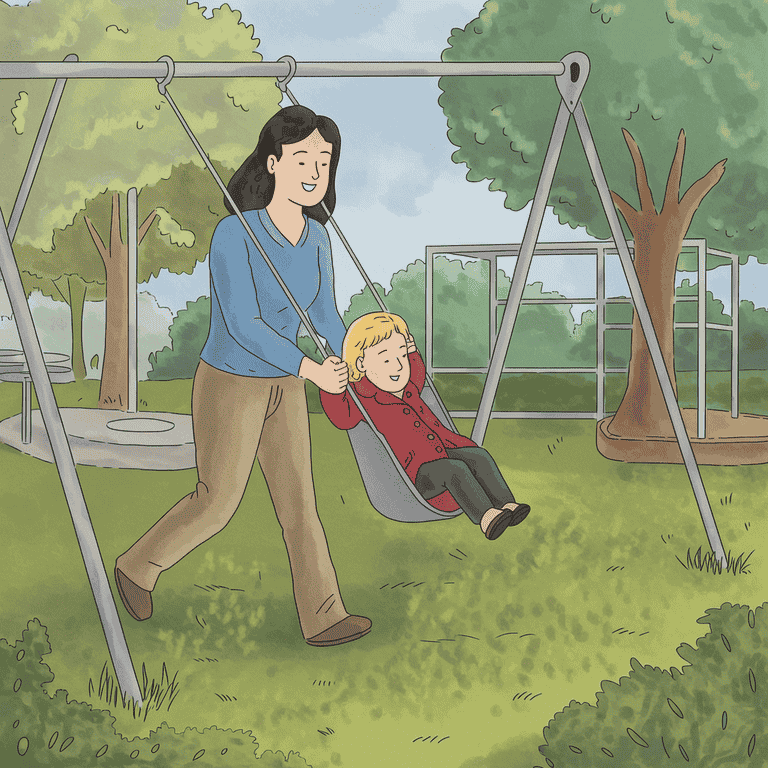Divorce and custody mediation is a process that helps couples and parents resolve their disputes outside of court. It is a voluntary and confidential way to address important issues like child custody, support, and asset division.
Definition of Mediation
Mediation involves a neutral third party, a mediator, who facilitates discussions. The goal is to reach mutually agreeable solutions without the stress and expense of a courtroom battle.
Importance of Mediation in Divorce and Custody Cases
Mediation is essential in divorce and custody cases for several reasons:
- Communication: It encourages open dialogue, allowing both parties to express their needs and concerns.
- Empowerment: Couples have control over the outcome, which can lead to more satisfactory solutions.
- Preserving Relationships: It helps maintain a working relationship, especially for co-parenting.
- Less Stress: The process is generally less adversarial, reducing emotional strain on all involved.
The Mediation Process
Understanding the mediation process can help you prepare and feel more comfortable. Here’s a breakdown of the steps involved.
Steps in Divorce and Custody Mediation
Initial Consultation
The first step is usually an initial consultation with a mediator. During this meeting, the mediator will explain the process, answer any questions, and assess whether mediation is appropriate for your situation.
Preparation for Mediation Sessions
Preparation is critical to a successful mediation. Consider the following:
- Gather Necessary Documents: Collect financial records, custody agreements, and other relevant documents.
- Identify Goals: Understand what you want to achieve. List your priorities to help guide discussions.
Conducting the Mediation Sessions
Mediation sessions typically last a few hours and occur over multiple meetings. During these sessions:
- The mediator will guide the conversation.
- Both parties will share their perspectives.
- The mediator will help identify common ground and explore options.
Reaching an Agreement
Once an agreement is reached, the mediator drafts a memorandum of understanding. This document outlines the agreed-upon terms and serves as a basis for any future legal agreements.

Benefits of Divorce and Custody Mediation
Choosing mediation offers numerous advantages compared to traditional litigation. Here are some key benefits:
Cost-Effectiveness
Mediation is generally less expensive than going to court. You save on attorney fees and court costs, making it a budget-friendly option.
Emotional Benefits
Mediation can be less stressful. The environment is often more relaxed, leading to better emotional outcomes for everyone involved.
Flexibility and Control
Mediation provides flexibility. Parties can create customized solutions that fit their unique situations. Mediation empowers you to control the outcome, unlike court rulings, which can feel arbitrary.
Faster Resolutions
Mediation typically moves faster than court cases. You can resolve issues in weeks rather than months or years.
Common Issues Addressed in Mediation
In mediation, various issues can be addressed to help you move forward. Here are some common topics:
Child Custody Arrangements
Custody arrangements determine how parental responsibilities are shared. Mediation helps parents agree on a plan that works for everyone involved.
Legal Custody vs. Physical Custody
- Legal Custody: Refers to the right to make important decisions about the child’s upbringing, such as education and healthcare.
- Physical Custody: Refers to where the child lives and how time is shared between parents.
Child Support Determinations
Child support calculations can be complex. Mediation allows parents to discuss and agree on support amounts based on their circumstances.
Visitation Rights
Mediation helps establish visitation schedules that work for both parents, ensuring the child maintains a healthy relationship with both.
Division of Assets and Debts
Dividing property and debts can be contentious. Mediation allows couples to discuss asset division openly and fairly, reducing conflict.
The Role of the Mediator
Mediators play a crucial role in the mediation process of divorce and custody. They facilitate communication between the parties and help them find common ground.
Qualifications of a Mediator
When choosing a mediator, consider the following qualifications:
- Training: Look for mediators who have completed formal training in mediation techniques and family law.
- Experience: An experienced mediator will understand the nuances of divorce and custody cases.
- Neutrality: A good mediator remains neutral and does not take sides. Their goal is to help both parties reach a fair agreement.
Responsibilities of the Mediator
The mediator has several key responsibilities:
- Facilitating Discussions: They guide the conversation, ensuring both parties have a chance to speak.
- Encouraging Collaboration: The mediator encourages cooperation and problem-solving.
- Providing Information: They can provide information about legal rights and options, helping parties make informed decisions.
- Drafting Agreements: Once an agreement is reached, the mediator can help draft a written agreement that outlines the terms.

When to Consider Mediation
Mediation can be a helpful option for many couples. However, knowing when it’s the right choice for you is essential.
Situations Suited for Mediation
Consider mediation if:
- Both parties are willing to communicate and negotiate.
- You want to minimize conflict and maintain a working relationship.
- You have relatively simple custody and financial issues.
- There is no history of domestic violence or abuse.
When Mediation May Not Be Appropriate
Mediation may not be the best fit if:
- There is a significant power imbalance between the parties.
- One party is unwilling to cooperate or negotiate in good faith.
- There are allegations of domestic violence or abuse.
- Complex legal issues require court intervention.
Preparing for Mediation
Preparation is vital for a successful mediation experience. Here are steps to take to get ready:
Gathering Necessary Documents
Collect relevant documents, including:
- Financial statements (bank accounts, investments, debts)
- Property ownership documents (deeds, titles)
- Any existing custody agreements or court orders
- Documentation of expenses related to children (medical, educational)
Identifying Goals and Priorities
Before mediation, think about what you want to achieve. Consider:
- Your ideal custody arrangement
- Fair division of assets
- Reasonable child support amounts
- Visitation schedules that work for both parties
Understanding Your Rights
Familiarize yourself with your legal rights. Knowing your rights can help you advocate for yourself effectively. You might consider speaking with an attorney to clarify any questions you have.

Divorce and custody mediation can be a valuable process for resolving disputes. It offers a way to reach agreements while minimizing stress and conflict. By understanding the mediation process, its benefits, and how to prepare, you can confidently approach this significant life change.
Mediation allows you to take control of your situation. It empowers you to create solutions that work best for your family. Consider mediation a constructive option if you’re facing divorce or custody issues. You might find it leads to a more peaceful and satisfying resolution.

What is the difference between mediation and litigation?
Mediation is a collaborative process where a neutral mediator helps parties reach an agreement. Litigation involves going to court, where a judge makes binding decisions. Mediation is generally more amicable and cost-effective than litigation.
How long does the mediation process take?
The duration of mediation can vary based on the complexity of the issues and the willingness of both parties to cooperate. Typically, mediation can take a few sessions over a few weeks or months.
Is mediation legally binding?
Agreements reached during mediation are not automatically legally binding. However, once both parties sign the memorandum of understanding, it can be made legally binding by filing it with the court.
Can I bring a lawyer to mediation?
Yes, you can bring a lawyer to mediation. Having legal counsel can provide you with guidance and support, ensuring you understand your rights and options.
What happens if we can’t reach an agreement in mediation?
If you cannot reach an agreement during mediation, you may choose to pursue other options, such as litigation. The mediator can help you identify any remaining points of contention and suggest strategies for future negotiations.
Is mediation suitable for all couples?
Mediation may not be appropriate for everyone. If there is a history of domestic violence, significant power imbalances, or one party is unwilling to negotiate, it may be better to consider litigation or other legal processes.
How do I choose the right mediator?
When selecting a mediator, consider their qualifications, experience, and approach to mediation. Look for someone who has experience in family law and is neutral, ensuring they will facilitate discussions without bias.
How much does mediation cost?
The cost of mediation can vary based on the mediator’s fees and the complexity of the case. Generally, mediation is more affordable than litigation, but it’s essential to discuss fees upfront with your mediator.
Can mediation help with issues beyond custody and divorce?
Yes, mediation can address various family law issues, including child support modifications, visitation agreements, and even disputes related to property division.
What if my spouse refuses to participate in mediation?
If your spouse is unwilling to participate, you may need to explore other legal options. You can still benefit from speaking with a mediator to discuss your options and prepare for potential court proceedings.

Mediation
A process in which a neutral third party, the mediator, facilitates discussions between disputing parties to help them reach a mutually acceptable agreement.
Mediator
A neutral individual trained to guide parties through the mediation process, helping them communicate effectively and resolve conflicts.
Legal Custody
The right to make crucial decisions regarding a child’s upbringing, including education, healthcare, and religious training.
Physical Custody
Refers to where a child lives and how time is shared between parents. It determines the child’s primary residence.
Child Support
Financial payments are made by one parent to the other to assist with the costs of raising a child. This can cover expenses like education, healthcare, and general living costs.
Visitation Rights
Legal rights that determine when and how a non-custodial parent can spend time with their child. Visitation arrangements can vary significantly based on individual circumstances.
Memorandum of Understanding
A written document that outlines the terms of the agreement reached during mediation. While not legally binding, it can be made binding by filing with the court.
Litigation
The process of taking legal action in court, where a judge makes binding decisions on disputes between parties.
Power Imbalance
A situation in which one party has significantly more influence, control, or resources than the other can affect the fairness of negotiations.
Domestic Violence
Physical, emotional, or psychological abuse between partners or family members. The presence of domestic violence can make mediation inappropriate.
Negotiation
The discussion aimed at reaching an agreement between parties. In mediation, negotiation is facilitated by the mediator to help find common ground.
Arbitration
Arbitration is a process similar to mediation, but the arbitrator makes a binding decision after hearing both parties’ arguments. Unlike mediation, arbitration does not involve collaboration.
Custody Agreement
A formal document outlines the arrangements for child custody, including legal and physical custody, visitation schedules, and child support obligations.
Conflict Resolution
Resolving a dispute or conflict through various means, including negotiation, mediation, or litigation.
Custodial Parent
The parent who has primary physical custody of a child, meaning the child resides with them most of the time.
Non-Custodial Parent
The parent who does not have primary physical custody of the child. They typically have visitation rights and may be responsible for child support payments.
Collaborative Law
An approach to divorce and custody disputes where both parties and their attorneys agree to resolve issues collaboratively, outside of court, often incorporating mediation techniques.

Further Reading
Make sure to explore these additional blog posts on our website:
- “Nevada Divorce: Get the Facts“
- “Las Vegas Divorce Attorney“
- “Top 5 Questions About Prenuptial Agreements“
- “Holiday And Vacation Time After Divorce“
- “How to Win Your Divorce“
- “How To Get Divorced Now Without Spending A Ton Of Money“
- “Divorce and Owning a Business“
- “Divorce Questions? Don’t Get Screwed! [Exclusive Insider Secrets]“
- “Uncontested Divorce“
- “Ending Your Short-Term Marriage“
- “Las Vegas Divorce Law”
These posts cover a wide range of important topics related to divorce, including legal considerations, financial aspects, and practical advice.
They provide valuable insights and answers to commonly asked questions to help you navigate the divorce process effectively and protect your interests.
Take the time to read these posts to gain valuable knowledge and make informed decisions throughout your divorce journey.

Offsite Resources You May Find Helpful
Online Parenting Programs – Nevada: This site provides court-approved online parenting classes for those going through divorce or custody disputes in Nevada.
American Psychological Association – Healthy Divorce: How to Make Your Split as Smooth as Possible: This article provides psychological advice and strategies for navigating a divorce in a healthy manner.
Family Law Legal Blogs – Justia: A collection of legal blogs discussing family law issues, including divorce and child custody. It’s a useful resource for getting perspectives and insights on a variety of family law topics.

What's Next?
Are you in Las Vegas and need help with a divorce?
Look no further than The Rosenblum Allen Law Firm!
We are the leading law firm for divorce mediation services.
Our experienced professionals will ensure that your interests are well-represented during negotiations.
With our advanced knowledge of family law, we can provide a satisfactory outcome – every time.
So don’t wait any longer – get your life on track and hire The Rosenblum Allen Law Firm today!
Call us at (702) 433-2889 for more information about how we can help with your case.

Frequently Asked Questions
What is a parenting plan?
A parenting plan is a detailed document outlining arrangements and responsibilities for co-parenting after divorce or separation. It covers custody, visitation schedules, decision-making authority, and other aspects related to children’s well-being.
What is the mediation process in a divorce and custody case?
Mediation is a voluntary, confidential process involving a neutral third party, or mediator, facilitating communication and negotiation between divorcing or separating parties. It aims to reach mutually agreeable resolutions outside of court, addressing custody, parenting time, and other issues amicably.
What is legal custody in the context of a divorce or custody case?
Legal custody grants a parent the right and responsibility to make significant decisions regarding a child’s upbringing, such as education, healthcare, and religion. It can be joint (shared) or sole (granted to one parent).
What is parenting time, and how is it different from custody?
Parenting time, also known as visitation, specifies scheduled time each parent spends with their child post-divorce or separation. It outlines when and where the child will be with each parent. Custody, on the other hand, pertains to the legal authority to make decisions for the child’s well-being.
What happens during mediation sessions for divorce and custody cases?
Mediation sessions involve divorcing or separating parties meeting with a trained mediator to discuss and negotiate various issues like child custody and visitation. The mediator assists in facilitating productive conversations, exploring options, and finding common ground for resolution, aiming to avoid lengthy court battles.




